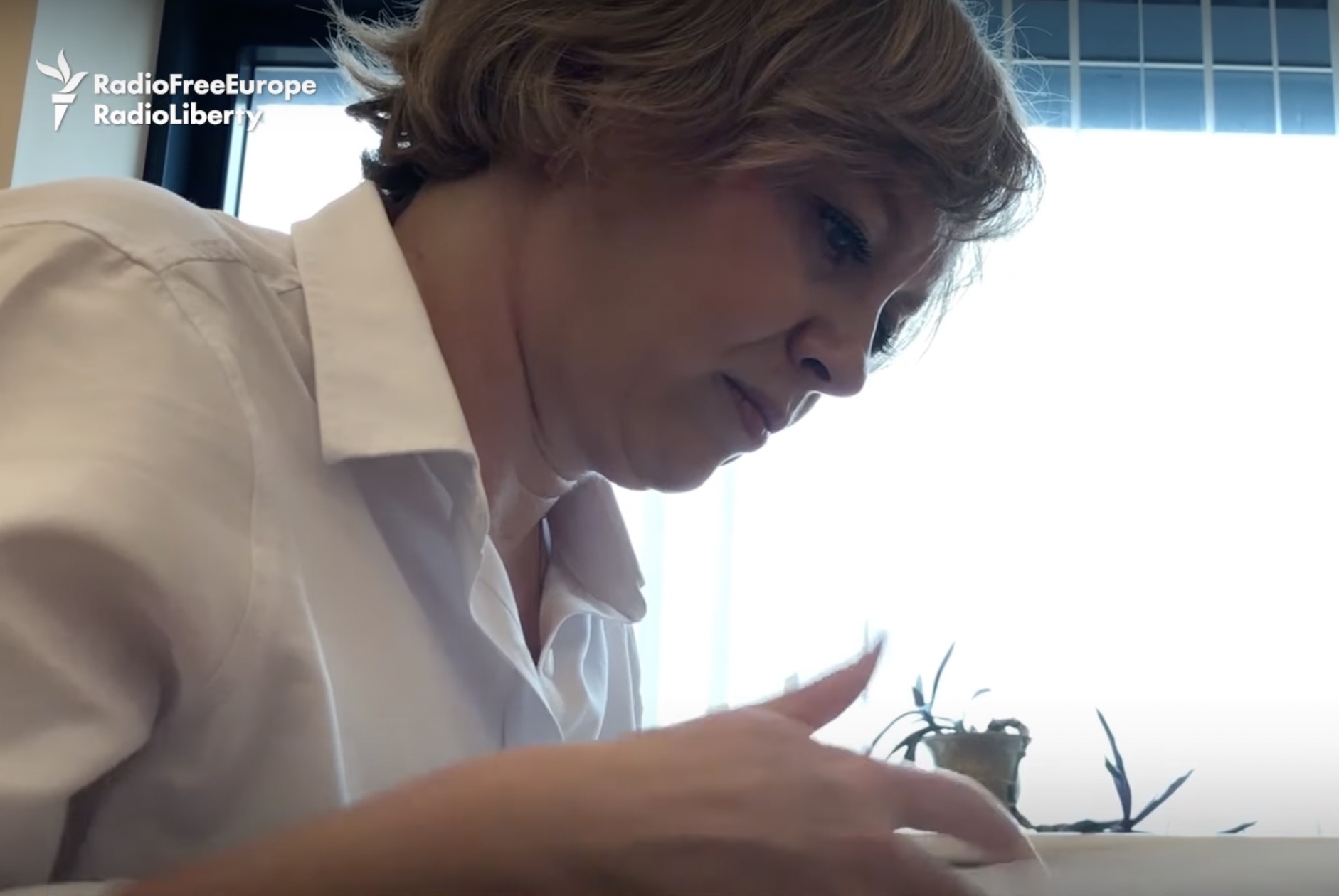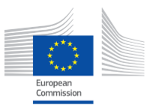Investigative journalist and university lecturer Emilia Șercan is at the center of a new smear campaign in Romania after she revealed that the interior minister had plagiarized her doctoral thesis. We met her
Investigate academic fraud committed by Romanian public figures. This is Emilia Șercan’s expertise. Freelance investigative journalist and senior lecturer at the University of Bucharest, she has been targeted by a new defamation campaign after revealing that the Home Secretary had plagiarized his own doctoral thesis. Unlike a year ago, when Șercan was targeted by an aggressive campaign kompromat with lots of leak of evidence by the police, this time the smear campaign seems to be directed by one of the parties in government.
You’ve had to deal with a lot of pressure in the past three months. How are you doing?
I am very tired because I am having a horrible time. I wish I had a couple of days to catch my breath. I feel that it is becoming more and more difficult to deal with the consequences of the misconduct of the Romanian judiciary and politicians.
You told me last November that you were working on an investigative piece, and a few weeks later I saw your article about Lucian Bode. Did this new smear campaign start soon after your article was published?
Yes exactly. This new wave of pressure came after I wrote about Home Secretary Lucian Bode’s doctoral thesis. The degree of violence and hostility I had to face this time marked a new peak in the aggressiveness that characterizes the Romanian public space. Plenty of websites, including publicly funded media outlets and outlets run by former journalists now members of the National Liberal Party [partito al governo e partito del presidente della Romania Klaus Iohannis], have launched a series of attacks to discredit me, spreading the rumor that I would like to run for president of Romania. They claim that this is why I started writing doctoral theses of some politicians. They have also tried to tie my journalistic approach to a political party, even though I have no political affiliations or sympathies. I have publicly declared that I have no ties whatsoever to any party. However, they suggest that it would be a political attack on the minister Lucian Bode. I’ve actually been investigating academic fraud for eight years. For the past eight years, I have done my job properly as a journalist, not because I have any political interests. After a series of intimidation, pressure, death threats and attempts to compromise me, they have now devised another way to discredit my work by saying that I intend to run for president. They profiled me, insinuating analogies with Maia Sandu, the president of the Republic of Moldova. Just like her, they claim, I’m a small, fragile woman with a political agenda. Let me emphasize this point once again: I never intended to get into politics. I’m a journalist and that’s what I will be for the rest of my life.
Why do Romanian politicians fear your investigations?
They are afraid that the public will know about the things they have done. This time, the public efforts to discredit and attack me have to do with the Home Secretary’s fear of being labeled for plagiarism. The role of Secretary General that Lucian Bode plays within the PNL also plays a role, which he leads despite the fact that the president of the party is the Prime Minister of Romania, Nicolae Ciucă, but Ciucă has little experience and is not suited to politics. Therefore, my revelations about Lucian Bode’s academic fraud were a serious blow, not only to the government, but also to GNP. Furthermore, my investigation was a serious blow to the Romanian Academy of Intelligence, since the rector of this institution was the supervisor of the plagiarized doctoral thesis. Ultimately, the investigation was a major blow to Babes Bolyai University, which tried to evade academic scrutiny. They tried to make sure it didn’t come to this. The attacks directed against me and the attempt to discredit the investigation reached a climax when Babes Bolyai University finally admitted that the doctoral thesis was plagiarized.
Thus, we are talking about political interference.
There is documented evidence of political interference for this latest smear campaign. Two articles have been published on two websites with deceptive domains that are registered outside of Romania and do not share details about their owners or their editorial teams. The content posted by these sites promotes the propaganda of the National Liberal Party. In addition, an advertising agency that has contracted with PNL has disseminated those articles on Facebook, which appear as sponsored articles on the social platform. An investigation conducted by Misreporta Romanian site dedicated to checking fake news and disinformation, found that an advertising agency had been paid for the dissemination of those articles on Facebook, an agency that has contracts with the PNL, including those related to the last electoral rounds that carried out in 2020, both at local and central level.
Do you think this is a strictly personal attack or a broader threatening message aimed at journalism in Romania?
There is evidence that PNL paid for the smear campaigns and online distribution of articles against me. The current attack is different from the previous ones, because it seems to be the result of a very high concentration of forces. This kind of thing happens when there is someone giving specific orders. And those instructions may have originated within a political party. This is also a clear signal to the very small community of independent journalists in Romania, the ones left. I would like to mention that we are currently experiencing a complicated situation in Romania regarding the press, especially the traditional press. About 80% of the press in Romania is financed by political parties, resulting in extensive political control. Under these conditions, with an almost entirely politically funded or controlled press industry, independent voices and independent journalists who criticize politicians in the current governing coalition are extremely vulnerable and easily attacked, just like me. To tell the truth, very few investigations are carried out in Romania. There are some small websites, groups of journalists that are not subject to political scrutiny and face inherent funding difficulties. Driven by their own passion for the press, for justice and for the truth, they continue to write and produce material on topics that are uncomfortable for the political class.
In fact you write as a freelancer for PressOne…
Yes, I write as a freelance for PressOne. I have a long-standing collaboration with them and I realize that perhaps, if it hadn’t been for them, the only way to publish my investigations would have been to open a blog. I would hardly have found space in a magazine in Romania.
Does morality have value in the Romanian public space or not?
It has almost no value. This is the extremely sad conclusion I have come to after eight years of writing about academic misconduct. In Romania, politicians have made a great effort to normalize shame and to normalize plagiarism.
Have you received solidarity?
There have been colleagues who have supported me, there have been colleagues who have been by my side during this period. The international support really meant a lot to me. I have received support from international organizations, international media organizations that have a comprehensive understanding of the challenges facing journalists in several countries where freedom of expression and the physical integrity of journalists are under threat. The solidarity I received both in the country and especially from international media organizations and some international and European institutions counted for a lot. Theoretically my profile is the most vulnerable, prone to being attacked and harassed. And for a freelance journalist it means a lot to know that you are not alone.
Do you see yourself as a role model for young female journalists?
Yesterday I started the second academic semester at the University of Bucharest teaching a course to a group of first year journalism students. We introduced ourselves and a student told me she signed up because I was a role model for her. This made me very happy and enthusiastic, of course. To this day I’ve had colleagues tell me what I do is extraordinary, but seeing that I inspired a young 18-year-old woman to come to college because she’s seen what I do, well, I find that extraordinary. I realize this has the power to influence female role models. In recent decades, when students chose our department, they were mostly inspired by the world of entertainment and celebrities. Going to university because your role model is an investigative journalist I think is a big change.
You have been nominated for the Jan Kuciak Award. How does it feel to be internationally recognized for the work you do?
First of all it was a surprise and I get very emotional when I think about it, because you realize that after years of work you have achieved an international recognition, recognition not generally granted by other journalists in Romania. Because it has often happened that the stories I have covered have not appeared in the mainstream press. When I heard this, I got excited and called my editor-in-chief and shared the news with her. Joy and surprise, all in one. We cried together on the phone. I would like to take this opportunity to mention how important was the support of Matthew Caruana Galizia, who encouraged me to participate in this award. We met in 2019, at an event organized in the European Parliament. Shortly after, when I received a series of death threats, in a context where the police investigation was stalled, I sought his help and he responded. Since then, we have kept in touch.
| This publication was produced as part of the Media Freedom Rapid Response (MFRR), co-funded by the European Commission. The responsibility for the contents of this publication lies with Osservatorio Balcani e Caucaso Transeuropa and does not in any way reflect the opinion of the European Union. |
Have you thought about a subscription to OBC Transeuropa? You will support our work and receive preview articles and more content. Subscribe to OBCT!



